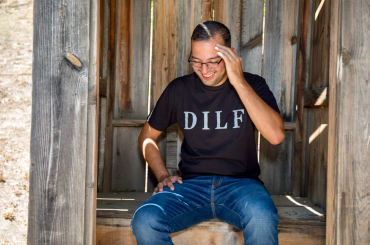Dumont: The way my release model is set up, you’ll be hearing new music from me every three, four, five months, in some form. The other reason I like this model is there are certain tracks that, if they were on an album wouldn’t have gotten as much attention as they would on a smaller record. If anyone has the old-school sense of mind of having an album, when you get to Blasé Boys Club 3, you have the first album. When you get to Blasé Boys Club 6, you have the second album. You can buy the 12 tracks together.
DJ Times: No full albums, then?
Dumont: As a fan of music, it kills me to think the era of the electronic album might be drawing to a close. But in all honesty, when I think about making 12 tracks in six months, it makes me freeze. If you say to yourself, “I’m going to make one track in three weeks,” you probably are. I’m song-oriented, as opposed to making a concept album, so, for me, to make the highest quality and the most amount of music as I possibly can, this is the most natural and organic way to release my music.
DJ Times: Your tracks have really impacted electronic dance music. Why do you feel that is?
Dumont: There is an element of soul in house records, maybe more so than EDM, that comes from vocal performances. The kids see it as a new thing. Obviously, it isn’t. House music is heavily influenced by black music. The reason I, and other house music producers, have had success is because we’re directly influenced by the pioneers. The thing that surprises me is how young Americans as a whole seem to think there’s this British invasion of house music and the reality is, it 100-percent stems from America. EDM whitewashed the history of dance music and it needs to be recognized.
DJ Times: It seems like not only have the big EDM festival sounds given way to house music, but they’ve also eased ears to drum-n-bass, which is completely the opposite sound. This kind of open-minded attitude toward genres is a characteristic of the current generation.
Dumont: I really agree. It’s only happened in the last five years. I remember growing up you had to pledge allegiance to a particular genre of music. I genuinely believe the younger generation is far more musically educated than my generation or any generation before purely because of the access to music. The trend I’m starting to see is there doesn’t seem to be a massive following in the genre, but there tends to be a massive following in an artist. I really like that. I love the fact that you could come see me one week, then next week a drum-n-bass act comes into town and the next week you might have The Weeknd coming and the same kids are going to all the shows. That’s absolutely grand. As much as the music industry is on another path, there’s a golden age of music at the moment with a wealth of good acts and good music. I hope it continues.
DJ Times: What are some differences you’re still noticing between the U.S. and European scenes?
Dumont: Over time, the differences are not as strong as they were. There are two major differences. Dance music in the U.S. is festival-oriented. Most people don’t want to spend a lot of money to go to a nightclub and see one act or they don’t want to spend a lot of money to see a live show. They want to go to a festival to see 20-30 DJs and have that festival experience. In Europe, there is a culture of mid-sized venues where kids will go out every week, twice a week, to experience DJs—although festivals are massive as well. It’s a lot tougher in the U.S. for a mid-range or lower mid-range DJ to have a sustainable career. I don’t mean on a talent level, just based on number of fans. The other difference is musical. The way music is made in Europe draws upon influences of the past. Europe is more old school, old guard, based in the roots of house and techno music. The U.S. is more forward thinking, more excited by fresher sounds.
DJ Times: What’s your advice for burgeoning DJs and producers?
Dumont: It’s very simple: work harder than any other DJ and producer you know. As I said before, work eight hours a day like any other person in real life. A lot of DJs and producers get into it because they think it’s an artistic life and a bourgeois lifestyle. You’ll be very successful and very good at your job if you work as hard as any regular person who works a normal job.
DJ Times: Solid advice.
Dumont: The other thing is, if you get into DJing because you want to be the center of attention, get the fuck out now. You’ll get very bored and very tired, very quickly. If you wake up and listen to music every day, you do music, and it pushes you way more than anything in the world, then you’re supposed to DJ. If you still have the bug 10 years later and still not making a great living, but yet that’s all you can do, you’re supposed to DJ. If you’re willing to make an average income and music is the only thing you want to do for the rest of your life, you’re supposed to DJ. Work your ass off and you’ll get it.








